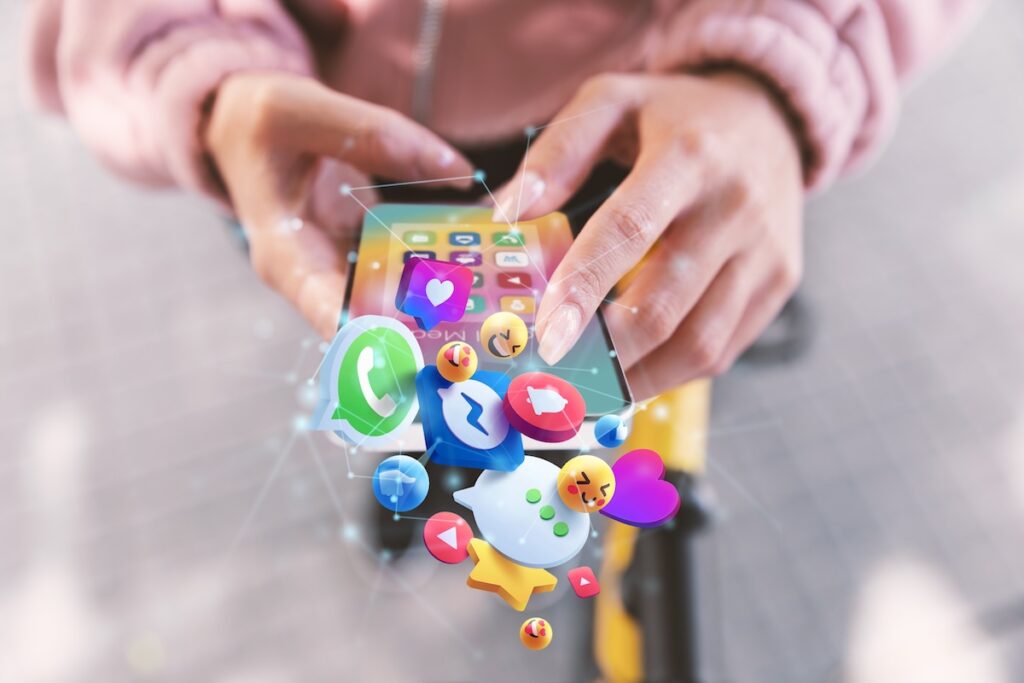In today’s modern and digital-first world, social media has become ubiquitous. It is a powerful communication tool, encouraging direct interactions, genuine connections, and reputation building and amplification. Social media has cemented its importance in the healthcare industry, especially during the global pandemic, when it was used to spread information, raise awareness, and answer frequently asked questions about the then-novel virus.
Although social media has many wonderful benefits — including sharing vital information, promoting healthy behaviors, and engaging with communities — it should also be used with safety and privacy in mind. Unfortunately, there are documented cases of healthcare professionals acting unprofessionally on social media, such as when two nurses posted a TikTok video mocking a child who was suffering from a gunshot wound or when a group of nurses participated in a TikTok trend where they shared their “icks” or turnoffs with maternity patients.
This article discusses what healthcare professionals should and should never do on social media when discussing pertinent workplace experiences and sharing valuable health-related information.
Social media dos: What healthcare professionals should do on social media
· Keep your accounts secure. Before you start posting on social media, regardless if it’s in a personal or professional capacity, it’s important to set up your social media accounts’ privacy by applying social media security best practices. These include practicing good password hygiene and enabling multifactor authentication (MFA).
· Create valuable, credible content. Social media enables healthcare professionals to share snackable, engaging, and most of all, reliable, content with communities. As a healthcare professional, you are responsible for verifying the information you choose to share or create on social media. The World Health Organization (WHO) recommends following these steps to ensure that the information you take in and share is fact-based:
o Assess the source. Vet where the information is coming from. Is it coming from a reliable source?
o Go beyond the headlines. Read entire articles and not just headlines. Always look for print and digital sources to back up an article.
o Identify the author. Take steps to check if the author is real or credible.
o Check the date. Make sure that the article is current and up-to-date.
o Examine the supporting evidence. Double-check the links, data points, and direct quotes cited in the article.
o Check your biases. Always evaluate your biases as they play a crucial role in how you view the world and the events happening in your life.
o Turn to fact-checkers. Check news outlets and fact-checking organizations when you’re doubtful about a piece of information.
· Be mindful of your audience and be professional. Your content should be appropriate for the people who will see your posts. Your content should also be professional and respectful; ensure your posts maintain a professional boundary with your audience.
Social media don’ts: What healthcare professionals should never do on social media
· Never disclose a patient’s personal health information (PHI). Always maintain your patients’ privacy and confidentiality by doing the following:
o Do not share, post, or disseminate information or images about a patient to anyone unrelated to the patient care process.
o Do not identify a patient by name or publish information that can lead to the identification of a patient.
o Do not disparage or mock patients on social media even if they are not identified in your posts.
o Do not take photos or videos of patients on personal devices.
· Do not post negative comments about colleagues and employers on social media.
· Exercise caution when connecting and interacting with current or former patients on social media.
· Do not post on your personal social media accounts during work hours. Do not also use work resources for your personal social media posts.
· Do not violate your employer’s social media policies and guidelines.







